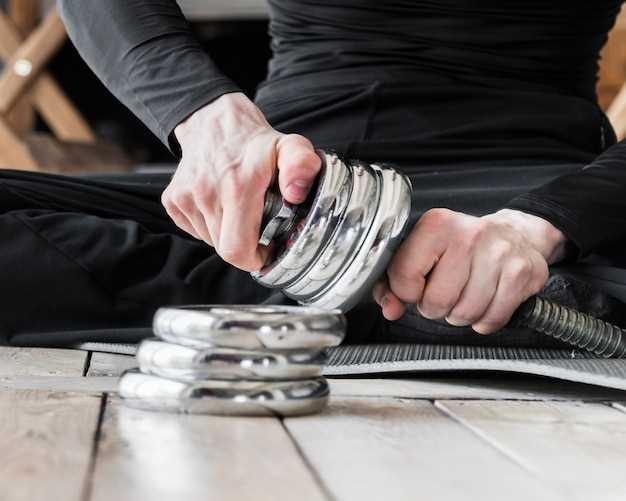Choosing Between Steel and Alloy Wheels

When it comes to upgrading or replacing your vehicle’s wheels, one of the primary decisions you face is whether to choose steel wheels or alloy wheels. Each type offers unique advantages and disadvantages, and understanding these differences can help you make a more informed decision that aligns with your driving needs and style.
Steel wheels are known for their durability and strength, making them an appealing option for those who frequently drive on rough terrains or need wheels that can withstand harsh conditions. They are typically heavier than alloy wheels, which can impact overall vehicle performance and fuel efficiency. However, their cost-effectiveness makes them a popular choice for budget-conscious consumers and for vehicles used in demanding environments.
On the other hand, alloy wheels are lauded for their aesthetic appeal and lightweight properties. They are often designed to enhance the overall look of a vehicle and can contribute to improved handling and acceleration due to their reduced weight. Nevertheless, alloy wheels can come with a higher price tag and may be more susceptible to damage from potholes or rough driving conditions. Understanding the specific requirements of your vehicle and driving habits will ultimately guide you in deciding which wheel type is the superior choice for you.
Steel vs Alloy Wheels: Which is the Better Choice?
When it comes to selecting wheels for your vehicle, the choice between steel and alloy wheels is significant. Steel wheels are traditionally heavier and more robust, making them an excellent option for those prioritizing durability and the ability to withstand harsh conditions. They are less susceptible to bending upon impact and are often less expensive to replace or repair.
On the other hand, alloy wheels, made from a mixture of metals such as aluminum and magnesium, are lighter, which can enhance performance through improved fuel efficiency and better acceleration. The aesthetic appeal of alloy wheels also cannot be overlooked, as they come in various designs and finishes that can significantly enhance a vehicle’s appearance.
In terms of heat dissipation, alloy wheels generally outperform steel wheels, leading to better braking performance and reduced brake fade. However, this performance advantage might come at a higher cost, and alloy wheels can be more susceptible to damage from potholes and curbs.
Ultimately, the better choice depends on individual needs. For those who prioritize strength and cost-effectiveness, steel wheels are a practical option. Conversely, if performance and style are paramount, alloy wheels could be the ideal selection. Assessing your driving habits, budget, and vehicle type will guide you to the best decision.
Cost Comparison: Are Alloy Wheels Worth the Investment?

When considering new wheels for your vehicle, both steel and alloy options present unique financial implications. Steel wheels are typically more affordable upfront, making them a popular choice for budget-conscious consumers. Their lower initial cost is often appealing, especially for those who require reliable yet economical solutions for everyday driving.
On the other hand, alloy wheels tend to carry a higher price tag due to their advanced manufacturing process and superior materials. The initial investment may seem steep, but there are several factors that contribute to their long-term value. Alloy wheels are generally lighter than steel, which can lead to improved fuel efficiency and better overall vehicle performance.
Additionally, alloy wheels often offer enhanced aesthetics, giving your vehicle a more sporty and modern appearance. This cosmetic upgrade may positively influence vehicle resale value, making them a worthwhile investment for those who plan to sell or trade their vehicle in the future.
Maintenance costs should also be considered in the cost comparison. Steel wheels are more prone to rust and damage from environmental elements, potentially leading to higher replacement costs over time. Alloy wheels, while more resistant to corrosion, require specific care to maintain their appearance, which might involve additional expenses.
In conclusion, while steel wheels present a lower initial cost, alloy wheels often provide benefits that can justify their higher price. Increased performance, aesthetic appeal, and potentially better resale value can make alloy wheels a worthy investment for many vehicle owners.
Performance Analysis: How Do Steel and Alloy Wheels Affect Driving Experience?

When evaluating the impact of wheel materials on driving experience, both steel and alloy wheels present distinct characteristics that influence performance, handling, and comfort.
Here are the main factors to consider:
-
Weight:
Alloy wheels are typically lighter than steel wheels, which can improve acceleration and braking performance. The reduced unsprung weight allows for better handling and a more responsive driving experience.
-
Stiffness:
Alloy wheels often possess superior stiffness compared to steel. This stiffness enhances cornering stability and provides a more precise steering response.
-
Heat Dissipation:
Alloy wheels usually offer better heat dissipation. Improved airflow around the brakes can lead to reduced brake fade during intense driving conditions, which enhances overall performance.
-
Dampening Characteristics:
Steel wheels can absorb more road vibrations than alloy varieties. While this can contribute to a more comfortable ride on rough surfaces, it may result in less feedback from the road, leading to a less engaging driving experience.
Choosing between steel and alloy wheels ultimately hinges on driving preferences:
-
Performance-Oriented Drivers:
Those who prioritize performance and agility may favor alloy wheels due to their lightweight nature and enhanced handling capabilities.
-
Casual Drivers:
Individuals seeking durability and cost-effectiveness for everyday use might prefer steel wheels, especially in regions with harsh weather conditions.
In summary, while alloy wheels generally provide a more dynamic driving experience, steel wheels offer reliability and comfort that can be advantageous in certain situations. Understanding these differences allows drivers to make informed decisions based on their specific needs and driving styles.
Durability and Maintenance: Which Wheel Type Lasts Longer?
When it comes to durability, both steel and alloy wheels offer distinct advantages. Steel wheels are known for their toughness and resistance to bending and deformation. They can withstand rough road conditions, making them a preferred choice for off-road and utility vehicles. This resilience often means they last longer under extreme conditions, provided they are properly maintained.
On the other hand, alloy wheels, made from a blend of metals such as aluminum and magnesium, are lighter and often enhance the overall performance of a vehicle. However, their lighter composition can make them more susceptible to damage from potholes or curbs. While they may not be as durable in extreme conditions, many modern alloy wheels are designed to withstand everyday wear and tear effectively.
Maintenance also plays a crucial role in the longevity of both wheel types. Steel wheels tend to require more upkeep, as they are prone to rusting and corrosion, especially in wet climates. Regular cleaning and protective coatings can extend their lifespan significantly. Alloy wheels require less maintenance in terms of corrosion but can develop scratches and scuffs that may affect their aesthetic appeal. Periodic polishing can help maintain their shine and prevent oxidation.
In summary, while steel wheels may offer superior durability in challenging conditions, alloy wheels can provide a longer lifespan with less maintenance effort when used under typical driving circumstances. Choosing the right wheel type ultimately depends on the intended use and driving environment.

